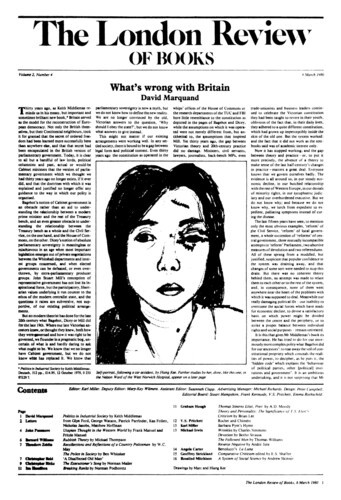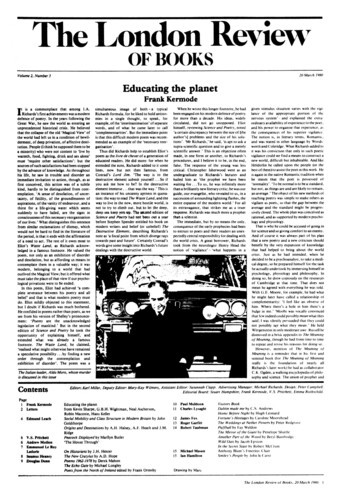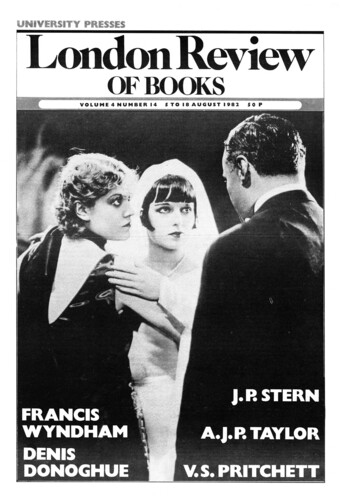‘A way into secrecy frisked a pampered mouse’ – a curdled Georgian sentence that leads one straight into one of Walter de la Mare’s most plain and chilling tales about a boy’s initiation into horror. The story is ‘An Ideal Craftsman’. In this genre he was a master – albeit a very literary master – of the riddles of sado-masochism, the dark underside of his ‘magic’. So also was Stevenson – a predecessor in his ‘sedulous ape’ period; so too, later, is the bookish cross-bred Borges. Miss Angela Carter, whose preface speculates here on his famous novel Memoirs of a Midget, glances at Borges and goes on to the possibility that de la Mare may be the only English Surrealist, but one with a manner that has what she calls the ‘sheen’ of the Pre-Raphaelites. This ‘sheen’ on his best prose is of course protective and is intended to give the false sense of safety in which we can play with unease. The rooms of his old country houses and their furniture gleam with malign assurance; the gardened Kentish landscape is rich and somnolent. Gardens are important to him – the shadows of trees or the cries of birds alarm a writer who feels himself to be watcher and watched. His ‘normal’ people are torpid, the class manners in which they are set are decorous and assured, even when they have the English acidity. ‘A double-minded creature I was,’ cries Miss M., the genuine midget in this novel. A freak she may be, precocious in her intellect and her retorts as she reads her Jane Austen, her Brontës, her Metaphysical poets, and studies astronomy, but she is vivacious and violent too: she is sarcastic rather than humbled, in her estrangement from the human norm. ‘Foolish girl that I was,’ she cries out again when she considers her self-will and her passions. Looking back on her failure to be anything more than a deviant, she eventually elects to see herself as nothing less than a damned soul – damnation is a kind of fame – and mysteriously speaks at the end of her story of being ‘called away’ out of loneliness into limbo – but not Hell. Miss Angela Carter, who is searching on the symbolism which seems basic to the Memoirs, thinks that its ‘metaphysical sub-text is a decoy’. De la Mare had a gift for the riddle within a riddle: but she thinks he offers ‘a key to a door behind which there is only another door’ and that he is shut up in Victorian reticence and sternly anti-Freudian. She quotes his own defence from his introduction to the Everyman edition of the novel in 1938: ‘Feelings as well as thoughts may be expressed in symbols; and every character is not only a “chink” or “peep-hole” in the dark cottage from which his maker looks out at the world, but is also in some degree representative of himself, if a self in disguise.’ This is a truism. What one notices are the ‘peep-hole’ and ‘cottage’: he was drawn to the small and unique because he applied a microscope to it and thereby turned it into the grotesque. He believed in the privacy of the imagination, regarding it as an anatomical part. We may think that Fancy rather than Imagination was his forte. Still, within these terms, he was an ingenious and marvellous architect of his elaborate drama. Immediately after the 1914 war, Angela Carter suggests, older readers may have been drawn to a nostalgia for the exclusive if staling comforts of a past that was safe: but there is no doubt that this novel is a minor masterpiece. He was an authentic connoisseur of manners, their spites and the price paid for their comedy.
‘A way into secrecy frisked a pampered mouse’ – a curdled Georgian sentence that leads one straight into one of Walter de la Mare’s most plain and chilling tales about a...




